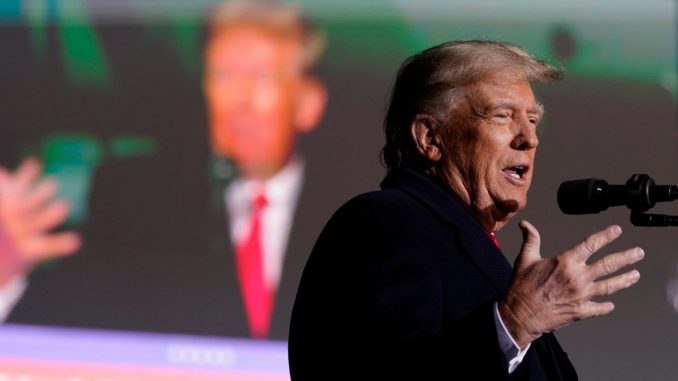
The Supreme Court on Tuesday rejected an emergency appeal from former President Trump seeking to shield his tax returns from House Democrats, capping a multiyear legal battle and paving the way for the release of his tax returns.
The order — which had no noted dissents — was in response to an appeal Trump filed with the Supreme Court late last month after a lower court declined to reverse its ruling mandating that he turn over his tax records to the House Ways and Means Committee.
Chief Justice John Roberts had temporarily blocked their release in a Nov. 1 order while the court considered the matter.
House Democrats have been seeking the records for years, saying they need to probe how the IRS conducts its routine presidential audits, while Trump’s attorneys have argued the matter is purely political.
“The Committee’s purpose in requesting President Trump’s tax returns has nothing to do with funding or staffing issues at the IRS and everything to do with releasing the President’s tax information to the public,” Trump’s attorneys wrote to the court in October.
While the order from the Supreme Court is a win for House Democrats, it’s unclear how useful it will be for them. It’s not clear how quickly the IRS would turn over the records, and House Republicans are expected to withdraw the request when they take over in January.
Trump’s tax records have been shrouded in secrecy since he bucked the tradition of publicly sharing them during his first presidential run in 2016, citing an audit.
Federal law mandates that tax returns are generally confidential unless an exception applies, one of which includes a written request by the House Ways and Means Committee. The issue in Trump’s litigation in large part turns on whether this exception is constitutional.
Presidents and vice presidents have undergone such auditing since 1977. Federal tax law also requires Treasury Department officials to hand over individual tax returns upon receiving a written request from the chairman of the Ways and Means Committee.
The latest phase of litigation arose last year when Trump asked a federal judge in D.C. to block the IRS from handing over his records, citing his privacy concerns and challenging the constitutionality of the House committee’s request.
U.S. District Judge Trevor McFadden, a Trump appointee, dismissed Trump’s suit late last year. His ruling was later affirmed by the U.S. Court of Appeals for the D.C. Circuit, which in October rejected Trump’s request to rehear the case, prompting his turn to the Supreme Court.
Congressional investigators had celebrated the October appeals court ruling.
“The law has always been on our side,” House Ways and Means Chairman Richard Neal (D-Mass.) said in a statement. “Former President Trump has tried to delay the inevitable, but once again, the Court has affirmed the strength of our position. We’ve waited long enough—we must begin our oversight of the IRS’s mandatory presidential audit program as soon as possible.”
Via The Hill
